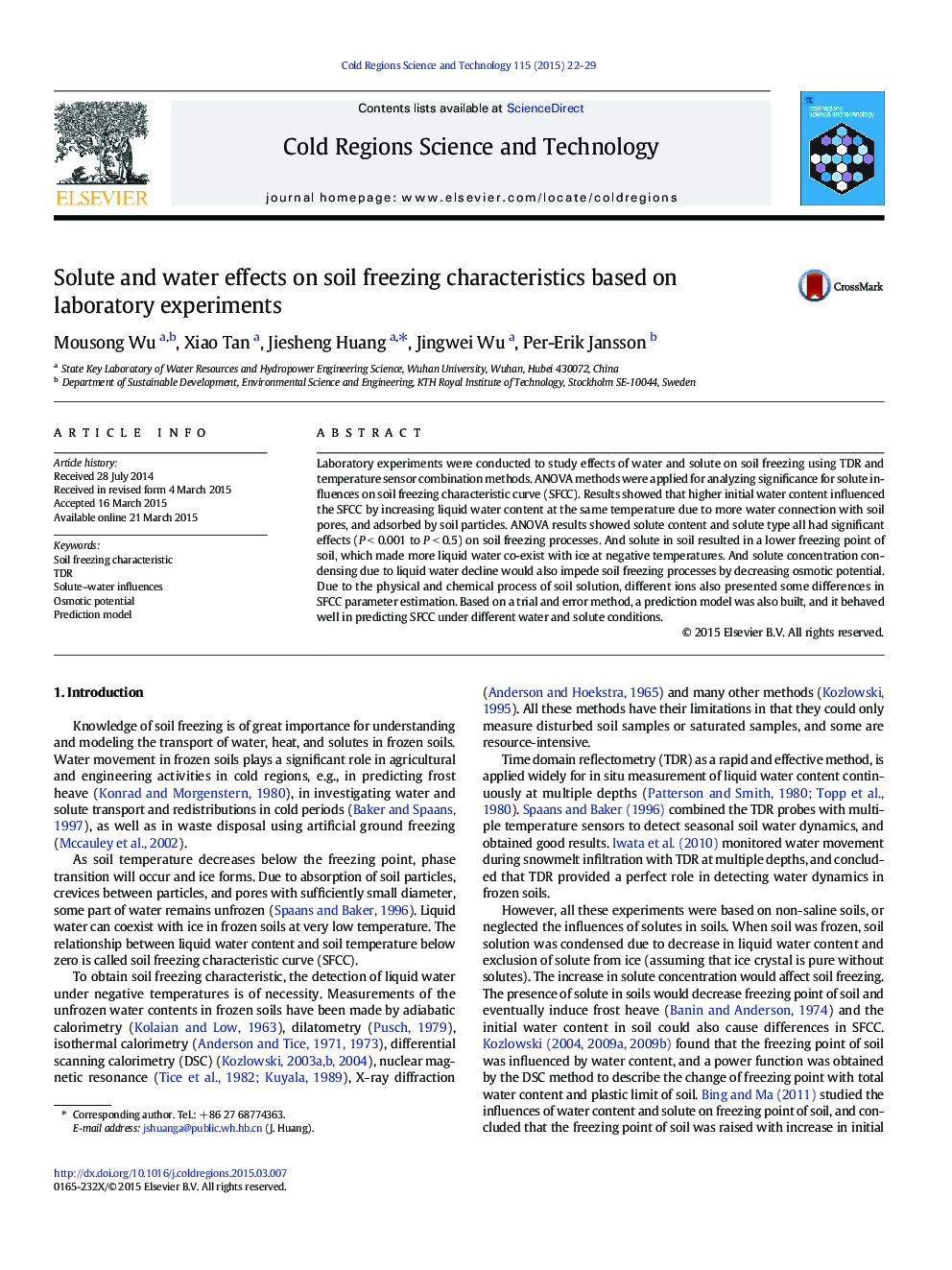| Article ID | Journal | Published Year | Pages | File Type |
|---|---|---|---|---|
| 6426837 | Cold Regions Science and Technology | 2015 | 8 Pages |
â¢We conducted soil freezing experiments on various solute and water conditions.â¢Initial water content has great influence on soil freezing.â¢Solute content and solute type could impact soil freezing point.â¢Soil freezing characteristic prediction model was set up and had good applicability in SFCC prediction.
Laboratory experiments were conducted to study effects of water and solute on soil freezing using TDR and temperature sensor combination methods. ANOVA methods were applied for analyzing significance for solute influences on soil freezing characteristic curve (SFCC). Results showed that higher initial water content influenced the SFCC by increasing liquid water content at the same temperature due to more water connection with soil pores, and adsorbed by soil particles. ANOVA results showed solute content and solute type all had significant effects (PÂ <Â 0.001 to PÂ <Â 0.5) on soil freezing processes. And solute in soil resulted in a lower freezing point of soil, which made more liquid water co-exist with ice at negative temperatures. And solute concentration condensing due to liquid water decline would also impede soil freezing processes by decreasing osmotic potential. Due to the physical and chemical process of soil solution, different ions also presented some differences in SFCC parameter estimation. Based on a trial and error method, a prediction model was also built, and it behaved well in predicting SFCC under different water and solute conditions.
